Episode 38: Board Meetings | Top 3 Training Trends We Disagree With
Let's face it, there are some really bad ideas out there. Myths that people cling to. New methods of "training" that just aren't thought through. Trends that are fun to jump into, but really aren't helping you.
For this episode, Nate and I sat down while we were in the Red River Gorge last fall and discussed a few of these trends, particularly the ones we like the least.
Share us on the social medias but remember, we don't tweet. We scream like eagles.
Like what you hear? Subscribe to The Power Company Podcast on ITunes, Google Play, or Stitcher Radio, and leave a rating and review!
FULL EPISODE TRANSCRIPT:
Kris Hampton 00:31
What's up everybody? I'm your host Kris Hampton.
Nate Drolet 00:35
And this is Nathan Drolet.
Kris Hampton 00:36
And together we formed Thera Cane. And I only say that because I'm very excited that you just dug yours out of the car so that I can heal my ailing body.
Nate Drolet 00:48
Funny story about Thera Cane. So I got my dad one, I don't know, maybe five or six years ago for Christmas. And I swear ever since then, every time we talk on the phone, he's like, you know that Thera Cane was the best Christmas present you ever gave me? Just I mean, it's it's to the point now to where I'll never one up it. Like I should probably just stop getting him Christmas presents. He's just like...
Kris Hampton 01:10
Maybe they don't make them in different colors, do they?
Nate Drolet 01:13
Oh that would be perfect.
Kris Hampton 01:14
Yeah. You should talk to Thera Cane about that.
Nate Drolet 01:16
See if I can get him one in other than green.
Kris Hampton 01:19
Get like him a Houston Astros Thera Cane. Are the Astros still in Houston?
Nate Drolet 01:24
Yeah, he's more of a Texans fan though.
Kris Hampton 01:26
Okay. Houston, Texas. Texans Thera Cane. Yeah. Yeah. Cool. What are we talking about?
Nate Drolet 01:35
We're talking about trends that we see in climbing that in climbing training that we don't necessarily agree with. Yeah.
Kris Hampton 01:43
Yeah, trends, concepts, myths, things like that. That we aren't super psyched on. You're starting this time I started the last time.
Nate Drolet 01:55
All right. Cool. I'm gonna go ahead and start with...
Kris Hampton 01:58
At first, can I can I jump in there?
Nate Drolet 01:59
You can.
Kris Hampton 02:00
I just, before we start here, I just want to say super huge thanks to all the patrons who have jumped on board and are paying money for this podcast. Yeah.
Nate Drolet 02:10
Yeah. And thanks, everyone who's gone on iTunes and given us a good review and
Kris Hampton 02:15
A bunch of people have, that's cool.
Nate Drolet 02:17
Yeah, that way other people can find us. And we can keep helping other people out.
Kris Hampton 02:22
Yeah. If you haven't rated and reviewed as yet, go do that. Alright, I'm done interrupting you.
Nate Drolet 02:27
Alright .So first off is kind of the idea that a lot of people are afraid that they're going to get hurt if they train. Training, yeah training should not be injuring you. If you get hurt training, you did it wrong.
Kris Hampton 02:42
Yeah. Yeah.
Nate Drolet 02:44
I mean, it's as simple as that. Training should make you stronger, and it should make you more resilient. And that's what it comes down to.That said...
Kris Hampton 02:52
Go ahead, go ahead.
Nate Drolet 02:54
That said, just because you get hurt training doesn't mean you necessarily have a terrible program. Like, sometimes life gets in the way, you know, people who have a lot of responsibility, I wouldn't know what that's like. But yeah, it's like cumulative stress is cumulative stress. Like if you don't get a lot of sleep, if you're not eating well, if you're not well hydrated. Yeah, you just got stressed out from work or life relationships or whatever. I mean, that stuff adds up. And so you have to learn how to account for that. And just do the best you can with what you've got that day. Because yeah, if you do try and just push through when you know, you, you're really dehydrated, haven't been eating well, and you know, you're on two hours of sleep, then yeah, the chances of injury go up dramatically.
Kris Hampton 03:39
Yeah, and you have to be willing to rest. I mean, you know, I think a lot of the people who do get injured training are the people who don't rest and refuse to rest. And so if it's, you know, if your body's telling you to rest, you should rest.
Nate Drolet 03:53
Yeah. And I mean, training, like with the same thing, training doesn't have, like, not everything you do has to be making you climb harder. Like a lot of stuff, just good general strength work should just make you a stronger, healthier person in general.
Kris Hampton 04:10
Yeah, for sure.
Nate Drolet 04:11
I mean, just because you're not doing something that directly makes your redpoint numbers go up doesn't mean it's not beneficial.
Kris Hampton 04:17
Right. And, you know, I think I think this is most common in the the people who don't come from an athletic background, you know, and who haven't seen various ways of training, you know, or who have been involved in one sport where they've been overtrained and they've gotten injured. You know, and I think both both things are pretty common in America. And, you know, I hear a lot of people in the gym who are who started climbing because it's this alternative sport, and they an alternative lifestyle and training is like this dirty word, you know? And I don't train you know, I'm just climbing. Training hurts people. You know, that's how people get hurt
Nate Drolet 05:05
Trains people bad technique.
Kris Hampton 05:07
Yeah. Yeah, for sure. I hear that all the damn time. And and you know, I probably have said that in the past..
Nate Drolet 05:14
Yeah, I mean, we're all guilty of things.
Kris Hampton 05:16
Yeah we probably have. But But yeah, training is a is a thing that's going to help you get stronger and make you more injury-proof. It's not going to injure you if you're doing it correctly.
Nate Drolet 05:27
Correct. I mean, that's, that's huge. Like if you're, if you're trying to get stronger shoulders and you're like, I'm gonna do bench press, and then bicep curls, and then cable cross and then more pecs and bicep kind of stuff. Like, this is just gonna help with my compression. Yeah, all it's gonna do is turn you into a Ninja Turtle.
Kris Hampton 05:44
Yeah. If you're doing six styles of benchpress in one workout, you're working out wrong.
Nate Drolet 05:51
Yeah.
Kris Hampton 05:51
And similar to how I did in high school.
Nate Drolet 05:53
Yeah, I mean, you know, a lot of us, like benchpress, once you hit 135, or, you know, one or two wheels, whatever it is, you're like, okay, I'm good to go. I'm just gonna keep doing these. I'm gonna go do a bunch of curls. Maybe some leg press.
Kris Hampton 06:06
Yeah.
Nate Drolet 06:06
And I'm gonna avoid anything that might be beneficial. Not to say, you know, these things aren't beneficial, but everything has to be well balanced. I mentioned lat pull downs and heavy weighted pull ups and all that. Yeah. So you know, well like balancing stuff...
Kris Hampton 06:25
Heavy rows too.
Nate Drolet 06:26
Rows are good, though. I mean, I think those aren't. I'm not really concerned with anyone doing too many rows. Let's be honest. Like,
Kris Hampton 06:31
But but you only really should do heavy rows after you've done heavy pull ups and lat pull downs, right?
Nate Drolet 06:37
Well, duh. Wide-grip lat pull downs.
Kris Hampton 06:40
Oh, yeah. And close grip, and reverse grip.
Nate Drolet 06:43
I only climb like at full extension.
Kris Hampton 06:45
Hahaha
Nate Drolet 06:46
Interestingly, there's actually research that came out that showed that your lat activation is the exact same as wide grip and regular grip pull up.
Kris Hampton 06:55
Oh, really?
Kris Hampton 06:56
Yeah. Yeah, I thought that was kind of interesting. So wide grip. It's a lot more on the shoulders.
Kris Hampton 07:03
Yeah. That's interesting.
Nate Drolet 07:04
Yeah. So if you're going for lats, then regular grip pull up does just the exact same thing.
Kris Hampton 07:10
Yeah. Well, that's good to hear.
Nate Drolet 07:12
So then that's one less variation of pull down and/or pull up?
Kris Hampton 07:15
Yeah,
Nate Drolet 07:16
Maybe add a push in there, guys.
Kris Hampton 07:17
Yeah, that's a good idea.
Nate Drolet 07:19
But uh, yeah, so training should make you stronger, healthier. Yeah, like training should make you more resilient. Like performance, performance is when things can go bad, and, like, this is also a reason why you shouldn't always be trying to perform, because that's when you're really putting stuff on the line. But yep, all right. That's my number one.
Kris Hampton 07:39
That kind of leads me right into my number one, which is not a big fan of combining CrossFit-style workouts with climbing movements.
Nate Drolet 07:51
Like max hangs every minute on the minute or as many rounds as possible?
Kris Hampton 07:55
Yeah. And like, you know, do like, you know, three snatches and then go climb three boulder problems, and then go do, you know, three sets of campus moves and, you know, just this like CrossFit-style rounds. Make you super tired and then ask you to perform something that's technically difficult and on your fingers.
Nate Drolet 08:21
That's completely fair. Question though, how many climbers do you know who actually have the overhead range to be able to snatch?
Kris Hampton 08:28
Hahaha. To snatch?
Nate Drolet 08:29
I know one. And Nick Cornwell, if you're listening to this, this is shout out to you. Otherwise, I don't really know many guy who can like, actually snatch.
Kris Hampton 08:37
Hahahah, yeah, yeah.
Nate Drolet 08:37
No, I totally know what you're saying.
Kris Hampton 08:39
Haha I definitely cannot. But
Nate Drolet 08:40
Yeah, like, it's hard to mix metabolic conditioning, or "met cons", as they say, in CrossFit, with high level technique. And I mean, climbing is very much a technique sport. And if you don't believe that, go to Smith and watch everyone out there. Like they're strong but god they are all good rock climbers. Or, yeah, I mean, Dave MacLeod talks about how back in the day, people, you know, they could go to France and watch all those French climbers just swim their way up limestone and that was this huge revelation for anyone who wanted to know what technique was. Like, that's what you did. You went out there. You saw them and that was like, okay, that's what it looks like. So yeah...
Kris Hampton 09:18
And I, you know, there's just to be clear, there's nothing wrong with CrossFit per se. As long as it's..
Nate Drolet 09:20
You need a good coach
Kris Hampton 09:24
Not to say, yeah, I'm not gonna say done correctly. But yeah, you need a good coach, you need somebody who's paying attention to you. And it shouldn't always just be, you go to the CrossFit box to get wrecked.
Nate Drolet 09:45
Terminology. I see what you did there with "box".
Kris Hampton 09:47
You see that?
Nate Drolet 09:47
Yeah, yeah, I mean, and I think like, a lot. I mean, let's just say like, you can have a bad coach for anything, like you could be powerlifting, climbing, Olympic lifting, CrossFit, whatever, like a bad coach is a bad coach. A great coache is a great coach,
Kris Hampton 10:01
Yep.
Nate Drolet 10:01
Like and that's kind of cool thing with CrossFit is now that's become as huge as it is, there are great coaches in there. So like, we're not here to demonize CrossFit. But I think it's easy to pick on. So it's easy to use that as an example instead of saying, like, well don't go in and just completely wreck yourself all the time. But...
Kris Hampton 10:19
Yeah, ultimately, I think don't combine that with, even if you are going to do that, if you love that style of wreck yourself workout. Great. And sometimes that's a good thing to do. You know, you you have to build your engine at some points in your training and that's that's a good way to do it. But don't add to that a high skill element, like campusing or climbing hard boulders.
Nate Drolet 10:44
I mean, there are a lot of great method things you can use for this like kettlebell swings are great. Loaded carries are fantastic. Things like sled pulling, sled pushing, battle ropes, a lot of medicine ball work. Like things that take very low amount of technical skill.
Kris Hampton 10:58
Right.
Nate Drolet 10:59
Like they're awesome, because you can do them until you're pretty fucking wrecked. And like, because technical skill is so low, your chances of getting hurt are very, very minimal. Like they're fantastic. There are great ways to do this if that's what you're keen on, and you want to build up that work capacity. Absolutely. Go for it. But make sure you're doing it right. Yeah, I completely agree. You know, don't be campus boarding or fingerboarding. Or...
Kris Hampton 11:21
When you're when you're core is exhausted and you can't keep everything engaged. That's not the time to do those things.
Nate Drolet 11:26
Yeah, I couldn't agree more. That was, that was a really good one.
Kris Hampton 11:30
Yeah, that's cuz I'm good at this. Your number two?
Nate Drolet 11:34
All right. Um, okay. This is kind of a little two parter. First off being don't do one rep maxes frequently.
Kris Hampton 11:45
Okay...
Nate Drolet 11:45
And really, when it comes down to it, just anything taken to an extreme.
Kris Hampton 11:51
Yeah.
Nate Drolet 11:51
If something's taken to its absolute extreme, it's probably not a good thing. Shy of like, I don't know, eating real food. Like that's, that's good.
Kris Hampton 11:59
Yeah.
Nate Drolet 11:59
Raw vegetables. Anyone out there, don't eat through windows.
Kris Hampton 12:02
Dont eat through windows? Yeah, I think that's a good one. Yeah, I agree. I agree. The one rep max is kind of a, you know, it can be a necessary thing for some people. But for the average person, it's probably not a necessary thing. You don't need to know necessarily what your, the utmost limits of that you're capable of. Yeah, for almost anything.
Nate Drolet 12:29
And I think like Dan John says, there's a difference between building strength... I think it's Dan John, building strength and demonstrating it. And so that's the thing like, are you actually building strength? Are you just like, kind of showing off?
Kris Hampton 12:43
Right.
Nate Drolet 12:43
Because, man, to do a one rep max of anything. So if anyone doesn't know what a one rep max is, it means you just do a single repetition of like, and you make it as intense as you absolutely can. And you go for success on that one single rep.
Kris Hampton 12:58
Generally associated with lifting weights.
Nate Drolet 13:00
Yes, yeah. So for instance, this could be a one rep max pull up where let's say you strap 80 pounds on to you, and you try and do a pull up with...
Kris Hampton 13:08
That's all you can do bro? hahaha
Nate Drolet 13:09
Pssh, do you even pull bro? Or, you know, you do a one rep max. Dead hangs, this could be might be like 10 seconds. And I'm not against doing heavy singles, which is to say doing a single rep.
Kris Hampton 13:23
Yep.
Nate Drolet 13:24
But you have to keep it regulated. Like, going for 100%, like, this is what we talked about earlier, like, if you're going for performance, that is when you have a much higher chance of getting injured.
Nate Drolet 13:38
So even like high-end weight lifters who their end goal is to do the heaviest one rep max humanly possible for them, that is their competition. They rarely go below like triples or doubles. Like, oh, like one rep max or two rep max, three rep max, until they're getting close to a competition, because it's not worth it. Like that is a very high risk activity.
Kris Hampton 13:38
Yep.
Kris Hampton 14:00
Yep.
Nate Drolet 14:00
When you are trying to push your absolute limits, where you're still gonna get wicked strong, if you're trying to do a three rep max or a five rep max and stuff like that.
Kris Hampton 14:08
Right, right, because you're learning to benchpress.
Kris Hampton 14:08
Right.
Nate Drolet 14:08
Like, these are great methods that you can use and you should use instead of always just trying to max out. And the thing is, like, if you are completely new to training, like you can get what people refer to as new gains. So it's like when someone starts lifting for the first time they go in, like, I'm gonna try and max out my benchpress every single day I go to the gym. That actually works for a couple months
Nate Drolet 14:32
Exactly. Like you were finally learning how to, like use all this strength. So that works for awhile, until it doesn't. And so it's the exact same thing with this. And also at that point, you're not like neurologically capable of recruiting enough muscles to like, kind of mess yourself up. But I mean, if you try and go in and do a one rep max hang every single time you go climbing like man, that's a lot of stress on your fingers. Which you know, like your fingers aren't that big like, and they can only handle so much. It's so much safer to pull it back a little bit. I mean, like Steve Bechtel says, you're better off under training by 10% than overtraining by 10%.
Kris Hampton 15:10
For sure, and I think, you know, the one rep max, by definition, is your absolute maximum. And anytime you're pushing up against your absolute maximum, you're also pushing up against what your body's capable of and to push past that means injury.
Nate Drolet 15:27
Potentially yeah
Kris Hampton 15:28
You know, so,
Nate Drolet 15:29
I mean, you're walking that fine line.
Kris Hampton 15:30
Yeah. So it's just a dangerous game.Yeah, I agree.
Nate Drolet 15:34
I mean, when it comes down to it, I, I just don't, it's not sustainable. Like, yeah, like you said, it's a dangerous game. And is it really worth it? Like, what if you can just keep getting stronger and not getting injured?
Kris Hampton 15:47
Yeah.
Nate Drolet 15:47
And like, yeah, it's not even just like, oh, no, I had to take three months out, because I tweaked my finger. It's not just those three months. It's you know the other six months that it takes to get back to the strength where you were. Like, nine months, you sat out where if you had just pulled it back 10% or something like that, like, you'd be way stronger now and healthy.
Kris Hampton 16:05
Yep. And you said anything to extremes? Did you just say that so you didn't piss off the one rep max crowd or did you have other specific things in mind?
Nate Drolet 16:16
And to go specific for a second, one rep max, which is even just yeah, like single. Like because I think it's fine to do a single rep, especially of something that is highly technical.
Kris Hampton 16:24
But leaving something in the tank.
Nate Drolet 16:26
Exactly. I mean, even Eva Lopez, who is all about the maximum
Kris Hampton 16:29
Yep.
Nate Drolet 16:30
Max weighted hangs or minimum edge depth max, max weight, max hangs, you know, she talks about, hey, you should be leaving some stuff in the tank. Like this should be difficult but you should never be fearing failure. If you're fearing failure, you are, you're pushing it too hard. So it's a lot of perceived difficulty in that...man, just had anything taken to extreme. Like, I mean, this goes with like, diet, this go. Definitely with like diet and nutrition. I mean, yeah, the whole moderation idea.
Kris Hampton 17:01
Yeah.
Nate Drolet 17:01
Like, easy example, there was a while where I was like, you know what, I'm gonna go ahead and like, follow along with this whole idea of, if you get stronger, it's going to increase everything else. Like, and this is very big with whole StrongFirst community and like Pavel Tsatsouline and like I've read his books. I love his stuff. But I mean, there's a thing called sports specificity. I need like, he's, he goes as far as to say, anything more than five reps and your are bodybuilding.
Kris Hampton 17:29
Right, right.
Nate Drolet 17:30
But the thing is, like, we climb more than five moves.
Kris Hampton 17:33
Right.
Nate Drolet 17:34
Like, and that's what it comes down to. So I took that advice for a while, and I was just like, okay, like, you know, I even joked around. I was just like, anything more than five moves, and I'm training for Cerro Torre. And all of a sudden, I was that guy that got pumped on six move boulders.
Kris Hampton 17:52
Haha yeah
Nate Drolet 17:52
I was like, what's happening to me, like, this is terrible. And, you know, I felt stronger. But those strength gains didn't immediately transfer. It's not like oh, and I have all this great endurance, because moves are at a lower percentage and my power endurance has gone up. I'm just like, I can pull five moves, and then I'm just fucking done. Like, I'm weak, as all get out. And so it took a while to dig myself out of that hole. It was, it was not a good idea. And so I think, as a general guideline, and a lot of people say this, it's this idea that if you could do nothing else, and you could only do one thing, what would it be? Strength training, right? Because it's gonna pay off. It's the same thing. People say, if you could only do one lift, what would it be? And a lot of strength coaches say, well, the deadlift, that's a really good one. But they are not saying only do a deadlift or only train strength. Like they were just saying, if you could only do one. But the thing is, all of us have the time to do more than just...
Kris Hampton 18:48
Right, like we have options.
Nate Drolet 18:49
Yes. So that, to me is a good example of taking something to an extreme. Saying, well, if they say that if you could only do one, so I'm only gonna do one.
Kris Hampton 18:59
Right, right.
Nate Drolet 19:00
Like, and suddenly you're yeah, you're that guy who's completely pigeon holed himself into just this really small sector of ability.
Kris Hampton 19:09
Yep. Yep. For sure. Uh, what is my number two? I can't even read my own writing here. So going into training overdrive the minute you fail. Like, I hear a lot of people who go out try their project. The project feels hard.
Nate Drolet 19:30
Okay. Yes.
Kris Hampton 19:31
They've been like, half-assing their training up until then. And then when the project feels hard, they're like, I need to train overtime right now
Nate Drolet 19:40
Campus boards every day.
Kris Hampton 19:42
Seven sessions a day, and it just doesn't fucking work like that.
Nate Drolet 19:46
Yeah, they overcorrect course.
Kris Hampton 19:47
Yeah, exactly. And, you know, again, you're risking injury that way. And, you know, and that back to Steve Bechtel here, but this is all an investment. Training is an investment. The training you're doing today doesn't pay off tomorrow. It's gonna pay off months from now or a year from now or...
Nate Drolet 20:09
In fact you'll probably be tired tomorrow. You might feel weaker than you do today.
Kris Hampton 20:12
You're gonna be tired tomorrow. It's a fact.
Nate Drolet 20:14
Yeah. Yeah.
Kris Hampton 20:15
So if you have half-assed your training and shit feels hard, it's because you've half-assed your training.Next time, don't do that. But your options are limited right now.
Nate Drolet 20:29
I think this branches into something. I don't know if you'd call this redpoint tactics if this would have been on the last podcast, but I'll...onto some of the pet peeves that I see of things. I've seen this plenty of times. And in the South, this is, in my opinion, a horrible thing to do. People are like, oh, no, like the season's here. And if anyone doesn't know, and in Chattanooga, the season, if you were lucky, sometimes it's like, I don't know, a month, two months. Like last year we had, in 2016, that winter, we had like two really good weeks.
Kris Hampton 21:04
Yep.
Nate Drolet 21:05
So the seasons short. Like good days don't always happen. Rain happens, like you'll walk out to the boulders and they will be all condensed. But ideally, you may have two and a half, three months. It's a very short season of the entire year.
Kris Hampton 21:16
Yep.
Nate Drolet 21:17
And man, there are people who are just like, Oh, I'm not where I need to be. I'm gonna go back to train. And man, you know, it's like, oh, it was 45 and sunny today and 30% humidity, and so and so it was hangboarding. Yeah, man...
Kris Hampton 21:31
They wait until January to start training.
Nate Drolet 21:33
Yeah. It's like you just had the whole day off and like, and that's the thing. It's like, why are we training? Like, I mean, I train because I want to rock climb.
Kris Hampton 21:41
Yeah, like, totally.
Nate Drolet 21:42
And I get it. Like, you know, we all have goals, we have things we want to get done. And there are times where you just have to, you know, do whatever it takes to get your goals done. But yeah, man, plan ahead. And when it's time to rock climb, rock climb.
Kris Hampton 21:57
Yeah, just don't have half-ass it. Like, plan ahead, but then also execute your plan. Or you're a sucker. Alright. Break?
Nate Drolet 22:07
Yes, ready for break.
Kris Hampton 22:08
Break. What's up everybody? Kris here, pardon the interruption. I'll keep this short and sweet. Since this podcast started taking off and we've been growing it, you guys have been asking how you can help out. I've got three ways for you. Number one, you can become a patron. That just means you give a monthly donation to the podcast $1 and up and you get something in return. And you can check out what those rewards are patreon.com/powercompanypodcast. Best of all, we'll keep it sponsor and commercial free for you. Number two, you can rate us and review us on iTunes. I know it's a pain in the ass to go to iTunes and do all that. But it really helps us out. At least that's what I'm told by the podcast powers that be. And number three, perhaps the easiest way and the best way to help us out is to share us on your social medias. Anytime you see us post up a new podcast, please share it with your friends, tag people who will really appreciate it or who need to hear the advice that we're giving. All right. Thank you guys. And back to the show. Okay, we are back. We have returned. This board meeting is back in session. I think you're up?
Nate Drolet 23:23
I believe I am. Alright. So this one. This one's close to my heart. The idea that techniques should only be done like during warm up or that a mystical thing that some people call a cooldown.
Kris Hampton 23:39
Yeah haha.
Nate Drolet 23:40
I've never seen it performed but I hear rumors that it's done by some people. But yeah, like, and don't get me wrong. Technique practice should be done during a warm up.
Kris Hampton 23:51
Yeah
Nate Drolet 23:52
But it's not just I did some quiet feet...
Kris Hampton 23:54
It doesn't end there.
Nate Drolet 23:54
Exactly. So its not like I did some quiet feet on some V0s and then I'm I'm good. Like, box has been checked, leaving this.
Kris Hampton 24:01
Yeah.
Nate Drolet 24:02
Like, I like to think of it as leveling up your different attributes.
Kris Hampton 24:06
Okay
Nate Drolet 24:07
So for instance, if I'm trying to work on my deadpoints, like maybe I initially start on V0, and then build up like so later and later into my session. So eventually, like, I want tobe able to do on a climb like V9, V10, like while focusing, being able to focus mindfully on deadpointing. Like, so I can like learn how to pause and hit holds perfectly and all these things. Again, you have to level up all your different skills like, Okay, I'm gonna try and get better at backsteps. So you start low, because the thing is, if you only practice, let's say, on 5.9 or V0, and then the second you get on your 5.12 project, suddenly your feet aren't so quiet and you're not twisting through moves very well because you haven't been practicing in a stressful situation. You have to escalate things to the right level.
Kris Hampton 24:55
So you're saying here is that you don't only work on your technique while on your very hardest project, or while you're traversing the giant jugs in the gym.
Nate Drolet 25:06
Correct.
Kris Hampton 25:07
Okay.
Nate Drolet 25:08
Yeah. When you're on your hardest project, you should, you shouldn't be thinking about anything. Like you should be completely zeroed in, like, just in the flow. Yeah, like you if you have time to think about, oh, I'm gonna really like place my feet quietly in this crux. It's not that hard for you.
Kris Hampton 25:24
Hahaha yeah.
Nate Drolet 25:25
Like, you're just a boss. But yeah, like, likely, it's just not that hard for you.
Kris Hampton 25:30
We're the only bosses here right now.
Nate Drolet 25:32
Clearly. We're the only people here right now. Sitting alone in the Arches Campground pavilion. But yeah, so you should make these, like these technical drills, you should take them and keep working on them through harder and harder climbs, like right up until you're primed to try really hard, you know, during your training session. And then when you get to things like limit boulders or projects. Man, you know, all rules are gone. Like lockdown. Get stuff done. Try really hard.
Kris Hampton 26:01
Yep.
Nate Drolet 26:02
But up until that exact moment, you should be focused on how you're climbing. Because man, when it comes down to it. I was looking at this the other day, because I like really depressing statistics, and...
Kris Hampton 26:13
Haha which seems to be all statistics, pretty much.
Nate Drolet 26:17
Yeah, I know.
Kris Hampton 26:17
The internet's just full of depressing shit.
Nate Drolet 26:19
Yeah, how you can die. Yeah, so I was just like, Okay, how many times do I actually pull onto the wall per session?
Kris Hampton 26:30
Oh
Nate Drolet 26:30
It's not that much. Like, and you look at how many moves you do, because you know, I'm mostly in bouldering, and falling a lot. So it's like, okay, well, maybe I'm doing like three moves or four moves at a time. You know, when I'm warming up, you do a lot more. But yeah, you're not actually climbing like a ton of moves in an entire session. Dave MacLeod talks on this, you know, the bulk of your session is, or it should be resting. If it's not resting, you're doing something weird, or you're ARCing, which I guess is weird and you probably hate yourself, because you're ARCing. But it's good for you, folks. But uh, yeah, like, you really aren't doing that many moves per session. So if you're just like, if you're thinking about getting Taco Bell after your session, while you're rock climbing, or things like that, if you're just like...
Kris Hampton 27:16
What about doughnuts?
Nate Drolet 27:19
Oooh...caveats. Yeah. If you're not paying attention to what you're doing while you're climbing, like there aren't, you're not you don't climb that much. Like you were just pissing away the opportunity to get better.
Kris Hampton 27:29
Yeah.
Nate Drolet 27:30
Like, you know, let's say you're only doing 400 moves in a session. If 300 of them are you just being like, God, I hate warming up, I can't wait to be on my project. Like, then you just pissed away 3/5s of your entire session, like you could have been getting better. And that all adds up.
Kris Hampton 27:48
And there there is a time, you know, and a place for just going into the gym and socializing and you don't have to pay a ton of attention and some people love that stuff. You know, that's why they're in there. And that's fine. If you're one of those people. That's great. I have no fucking clue while you're listening to this podcast. But that's great. And you should continue doing that. However, the people who are listening to this for a reason, it's generally not a good idea.
Nate Drolet 28:14
I mean, I think there's a good fun social aspect. And you can make it...
Kris Hampton 28:18
At the Halloween party.
Nate Drolet 28:18
At the Halloween party.
Kris Hampton 28:20
One time a year. That's it.
Nate Drolet 28:21
Yes. Otherwise, don't talk to me. I actually put headphones in when I go to the gym. They're just running into my pocket. They're not like actually attached to anything. So I'm not gonna...
Kris Hampton 28:31
There's no iPod?
Nate Drolet 28:31
No iPod or iPhone, cuz that's heavy weight. It's just in there. So that no one talks to me like that's a universal sign. I have headphones in. Don't look at me. Don't talk to me.
Kris Hampton 28:40
You just need the ice grill dude. That's what I do in the gym. People don't talk to me because I just look mean.
Nate Drolet 28:45
Not now chief. I'm in the zone. Yeah, I mean, like, I think the social aspect of climbing is great. But yeah, if you're spending more time, like sitting on the pads talking than climbing. If you ever have to rewarm up after a conversation.You know?
Kris Hampton 29:03
Hahaha yeah.
Nate Drolet 29:05
Yeah. I don't know if I have to go in much deeper explanation.
Kris Hampton 29:08
Yeah, so my number three kind of along the same lines, though, in a broader sense. It irks me to see climbers, especially noobs. We're gonna call you noobs. That's not a derogatory term. It's just a factual one. And jumping straight to strength training, you know, hangboarding, campusing, things like that. And skipping over learning how to move, learning how to climb.
Nate Drolet 29:44
Okay.
Kris Hampton 29:45
That hangboarding so popular. You know, every gym's got 14 different hangboards, and campusing is super popular, you know, with the moon spacing, of course.
Nate Drolet 29:57
Oh duh.
Kris Hampton 29:59
And everybody wants to do it. Like it's the cool thing to go do. And I see people go in, climb fucking horribly,feet all over the place, jumping between everything, Rowland Chen. Just kidding. Hahaha just kidding. Rowland's a brilliant climber. No, I see kids doing that all the time. And then they go hangboard at the end of their session. And I'm like, don't they want to know how to climb? Like, maybe they just come here, maybe there's a hangboarding gym. Maybe it's not actually a climbing gym, because I didn't see any climbing happen. So that's frustrating, if you can't tell...
Nate Drolet 30:38
Tell those kids to get off your lawn.
Kris Hampton 30:41
Uncle Jesse. I'm Uncle Jesse. I do...Get off my lawn!
Nate Drolet 30:46
Yeah, no, I think there's, I'll even piggyback on that a little bit. I think that people escalate their training a bit too fast. I think that people like to jump to the highest progression they ever see. They're just like, oh, dragon flags.
Kris Hampton 31:01
Yeah, yeah
Nate Drolet 31:02
Yeah, that's it for me. Like they can't hold a hollow body to save their life but suddenly, they need to be doing dragon flags with ankle weights on.
Nate Drolet 31:09
They do look way cooler.
Nate Drolet 31:10
Or going straight to like front levers, or just the most heinous things they can think of. Like, no, no, I'm a bodyweight athlete. Like I can do pull ups or I can do a one arm. It's like, stuff like that. And they just escalate everything very quickly. They had a quote, Dan John, like, the best correctives are the regressions of the primary movements like
Kris Hampton 31:30
Yep
Nate Drolet 31:30
For a lot of people, yeah, I don't know. Like, you just need to pull things back. And just, yeah, pull things back until you are using good form, and then slowly build up from there. Like there's nothing wrong with using a regression of different movements.
Kris Hampton 31:46
Yeah. And can we talk briefly about, about working on movement, because I think there's a big gap there. And you and I have been working on how to fill that gap. And our workshops, do a good job of it. And we're eventually going to have an ebook that addresses it. But working on movement is tough. It's not as simple as go in and just practice heel hooks, or just practice back flags. Or, you know, it's not that simple. And you touched on that just a minute ago with that you can't just do it on your easiest warm ups or your mythical cooldown. So how do you work on movement? Like what has to happen for you to go in on your own and get better at movement?
Nate Drolet 32:33
Mercy.
Nate Drolet 32:35
Haha let's do a brief synopsis.
Nate Drolet 32:38
What's the meaning of life? Anybody doesn't know. I've been like attempting to write a movement book for ever. And it just keeps getting...
Kris Hampton 32:48
Its hard.
Nate Drolet 32:48
In every direction. Yeah. And it's something that I think about a ton and I absolutely love. Well, to start off, you said, you know, go in alone. I think to start off, that's great. Like, for me, I think for a lot of people, being able to climb alone, especially working movement, is really helpful. Because man, it can just looked like you fucking suck.
Kris Hampton 33:11
Yeah. And you're willing to look stupid when you're by yourself.
Nate Drolet 33:13
Yeah, exactly. If anyone doesn't know when a gym is empty, it's Sunday mornings. Maybe that's just in the Bible Belt down in the South. But it's awesome. Actually, I don't know. Now, I won't go there. But yeah, like, I think shooting video of yourself helps a ton.
Kris Hampton 33:32
Mm hmm.
Nate Drolet 33:32
I don't know if anyone else does this, but I'll watch video of pro climbers. And like once you've seen a video of yourself, you can imagine what you look like climbing. But I'll watch a pro climber in a video. And it's helpful because I'm like roughly medium height. White with brown hair, which is like most pro climbers that are American.
Kris Hampton 33:53
Yeah, most pro climbers.
Nate Drolet 33:55
Pretty much pretend I'm watching myself climb. But whenever I watch these people, I say okay, what are they doing that I can't. Like the second I'm like, wow, that like that move is locked in so tight. That's something I can't even replicate if I wanted to. I look at these little different things. Like if I'm watching Ty Landman, man. I'm like, wow, his ability to carry momentum through moves is just tremendous. Or you look at Daniel Woods, it's like, man, that guy can move so slow and he's so strong.
Kris Hampton 34:22
Lock shit down at his waist.
Nate Drolet 34:24
Yeah, it's incredible. Like there's all these and he has such strong like thumbs. Like there's all these different little things that you when you watch. Like, when you watch Jimmy, his ability to... he has such tremendous strength, but it's not just that he's strong, he can use his strength to press himself into these very advantageous positions. And then from there, he's in this perfect plumb line and the next move is really easy. And he frontloaded all the difficulty of the move a lot of times, but it's something you can only do with a lot of strength to be able to get in these positions. But it's a really cool use of strength. So I look at these different things. And I say, Okay, what are they capable of that when I see that I'm like, Oh, I don't I don't even understand that.
Kris Hampton 35:05
Yeah.
Nate Drolet 35:06
And then maybe I'll try to replicate it.
Kris Hampton 35:08
Yeah. And when you're trying to replicate it, you have to be mindful of what's happening. And an attempt to recognize why you're failing. I think that's the important thing. If you can just go in and replicate it first try, then you're not necessarily learning anything. You have to fail quite a bit, and look a little stupid. And that's why it's can be advantageous to be in there by yourself. And and start really tearing apart those failures and then try to fail better the next time.
Nate Drolet 35:37
Yeah,
Kris Hampton 35:38
Yeah.
Nate Drolet 35:38
No, yeah, I don't know. And I think so to go back to the topic of movement. Don't ever believe that you're beyond the basics. Like, I mean, enough, people have said it the best are better at the basics. You know, I can't say that enough. Like, yeah, I mean, I believe that more and more.
Kris Hampton 35:59
Yeah, I mean, we're all we're all watching. Adam Ondra right now, work on the Dawn Wall. And every single post that's come out about it, he talks about the footwork, and learning the balance and learning how to move on this super slippery granite. You know, and because he's, he's totally, he doesn't need to be alone, he's totally willing to say, I'm getting my ass kicked up here. And I'm loving it. And these holes are horrible. And these feet are terrible to stand on. But I'm getting better at it. And I need about another week. And I'll do it, you know, but it's because he's so good at recognizing his limits. And then working on them. You know, he's, he's quite possibly one of the best technical sport climbers ever. But he's totally willing to say, I don't understand this. I'm not good at this. I need to learn it. Drop my ego and learn this thing. And then I can do it. Yeah. And he's the best. So you know
Nate Drolet 37:05
If he's doing it...
Kris Hampton 37:06
Then we have no reason to be scared of failing.
Nate Drolet 37:10
Yeah. Oh, man. It's so easy to do, though, like it especially, I mean, it's easy to feel like you have something you have to live up to. It's like, Oh, I'm like, the really strong guy or I am, I'm the guy who jumps to holds or the person who always has to find the best beta for things. So like, I can't just thug through things. They're just whatever it is, like, yeah, I don't know, fail a lot. Like if you're, like, try and learn how to love failing. Like, I've started using this word. I think I've talked about this before, but I like to use the word uncomfortable. Because it's also just kind of a loaded word. And I just hate using it because it makes me realize that it's, it's a problem with me. Like when I do a move, and I'm like, instead of being like, Oh, that's just fucking stupid. Like, or that's a dumb move.
Kris Hampton 38:01
Like when I took you offwidth climbing in Vedauwoo.
Nate Drolet 38:03
That was stupid. I was very uncomfortable. But that's the thing. It's like if I sat back, and I'm like, I'm very uncomfortable with this move. Well, a lot of times, it'll be if something's a little bit heady. Like it's a little scary, or just whatever, I just say, this is uncomfortable. It's kind of similar how Rowland was talking about, instead of saying, I can't do this, you say, I don't understand.
Kris Hampton 38:23
Right.
Nate Drolet 38:24
Like, and that was one of my favorite things from that podcast. But it's the same thing. I'll just say, you know, I'm uncomfortable with this. I don't get it. And that puts all of the onus on me. And it's like, okay, how can I become comfortable with this? Like, what do I need to do?
Nate Drolet 38:37
Yep. Instead of just saying, man, it's so easy to just be like, oh, that's dumb.
Kris Hampton 38:41
Yeah. And I think that's a really, you know, I hear this in gyms all the time. And I'm definitely guilty of it, saying, oh, that's just an awkward problem. You know, and sometimes it is because they're, they're really suck ass setters out there. You know, it's true. They're out there...
Nate Drolet 38:54
How do you think they feel?
Kris Hampton 38:55
Hahaha. So sometimes there are just awkward, stupid problems. But oftentimes, if you look at someone better than you on that awkward, stupid problem, they make it look not so awkward and stupid. So maybe it's just that you lack the ability to make that problem flow. And maybe you can learn something by it.
Nate Drolet 39:15
And I can tell you all those shenanigan rose moves I've been doing all the time. Went to Smith. They paid off. I didn't send Rude Boys but I did the rose move.
Kris Hampton 39:24
You have a photo to prove it.
Nate Drolet 39:25
I do. Yeah.
Kris Hampton 39:27
okay, was that all of it?
Nate Drolet 39:30
I think I have another one if you want.
Kris Hampton 39:32
Yeah, do it. Do another one. Top three and a half.
Nate Drolet 39:35
So the over quantification of training.
Kris Hampton 39:40
Okay.
Nate Drolet 39:41
So I've got to do like two different quotes. One is attributed to Einstein, but I guess people say it could be from a bunch of different people. We'll say Einstein, and it's that not everything that counts can be counted, and not everything that can be counted counts.
Kris Hampton 39:57
Yes.
Nate Drolet 39:58
And as the guy who's all about movement and technique, I fully believe in this.
Kris Hampton 40:03
Yeah. And you know, you and I've had this conversation for months now about trying to come up with some sort of assessment, as far as, how do we quantify what people should be able to do on a certain level. And it's fucking hard.
Nate Drolet 40:28
Yeah. I mean..
Kris Hampton 40:29
It's so hard to figure those things out.
Nate Drolet 40:31
A lot of things are trainable. And a lot, man. I feel like every time I'm like, I've got my finger on, I'm like, this is it right here. I meet someone who just blows away any metric I could imagine.
Kris Hampton 40:42
Yeah.
Nate Drolet 40:43
And they're just like, yeah, I'm really psyched on this V6. I'm like, what do you think you're holding a 25 pound plate, hanging off a half pad edge with the other hand, and you're holding this conversation?
Kris Hampton 40:53
Right. Like, while in a front lever
Nate Drolet 40:55
While in a front lever, of course. Shout out Andy Cutler. Haha I'm kidding. He's a great rock climber.
Kris Hampton 41:01
Yeah, I do that. And you know, a lot of the even when you do figure out the metrics, you've got like, 10% of the story.
Nate Drolet 41:10
Yeah.
Kris Hampton 41:11
So I mean, how much do those metrics even matter?
Nate Drolet 41:14
Alright, so here's where my other quote comes in. And this is kind of playing right...
Kris Hampton 41:18
I set this up for you without even knowing what the other quote was.
Nate Drolet 41:20
So the other one is from Peter Drucker, and it's that every, what gets measured, gets managed. And so here's the thing, like, if you're not paying attention to something, chances are, you're not gonna fix it, like you're not going to improve. If you have never seen a confident rock climber, and you don't know what confidence looks like, how are you going to know that you're not confident? If you've never seen someone move fast? Like, if you don't know what fast rock climbing looks like, then you could just be a super slow rock climber and not know any different. Like, there are so many things. And that's the thing too, like, if you're not paying attention to finger strength, like, cuz finger strength is very important. I think, as far as quantifiable things go, that's a pretty good one.
Kris Hampton 41:33
Yep.
Nate Drolet 41:42
Like, and there are, I think there are definitely places where having metrics comes into play. And that's incredibly important. And we should pay attention to that. But just because you can assign a number to something doesn't mean that it's important. And just because you can't assign a number to other things, doesn't mean it isn't.
Kris Hampton 42:18
Yep, yep, totally. And it could very easily be misconstrued as those two quotes are sort of fighting against each other. You know, but, but i don't think so i think you can measure something without having the exact number. I know, especially when it comes to climbing you can, you can take like, you just use the example of confidence. You can't measure the number of units of confidence you have...
Nate Drolet 42:46
You can't?
Kris Hampton 42:47
I can't haha. But, but you can understand that it's getting better. Like you can you can see the results of getting more confident.
Nate Drolet 42:58
And and no one would argue with you that confidence is like not beneficial to rock climbing. I mean, that's, you watch a confident rock climber and man, especially with sport climbing, you're just like, oh, what the fuck have I been doing this whole time? Like that guy, or that girl, just charged through everything, just without any hesitation. And it was incredible. Like, and that kind of stuff to me is so inspiring. Yeah, you can't, like there's no rep or set scheme for confidence,
Kris Hampton 43:25
Right.
Nate Drolet 43:25
Or any of that.
Kris Hampton 43:28
So much of it. Yeah. And you can, you know, there's a big trend right now toward measuring your anaerobic capacity or your anaerobic endurance and your aerobic endurance. And, you know, you can measure all those things, that's great. However, you could have the, the best measurement ever recorded for your anaerobic endurance. And if your footwork fucking sucks, when you go out to a rock climb, you're gonna fail really quickly compared to a guy with better footwork with half your anaerobic endurance, because he's more efficient when he actually is rock climbing, you know? So just because you can measure it doesn't mean that's where it stops. And you can't measure how good someone's footwork is necessarily. You can measure it, you can't quantify it, I guess.
Nate Drolet 44:19
Yes. Yeah. And I mean, this is in no way an attack on using metrics or any
Kris Hampton 44:25
No, no, no, not at all.
Nate Drolet 44:26
I think they're amazing. Like, if you know, what you need to be working on, like fantastic, work on it. I think training is a constant. Training is something we should be doing more or less all the time. Sometimes you do it at higher levels. Sometimes you do it a lower intensity. But yeah, like, if you have shit aerobic endurance, like you're getting, you're not recovering fast, like, you're gonna get so pumped to not be able to get rid of that pump as fast. Like there are a lot of different things where it'll benefit you. So work on it. But the thing is, that is not the end game.
Kris Hampton 44:59
Right. That's only a part of the story.
Nate Drolet 45:01
Yeah. And I mean, I think that can be said for everything. Like, that's what's awesome about climbing. I mean, especially you climb with all these guys who've been climbing, you know, 30, 40 years. And they're clearly not stronger than you. Like, there's some but their understanding of movement and of themselves and all these things. It's incredible. And it's so cool. There's always things to be working on always seems to be getting better at. I think it's amazing. So yeah, definitely use numbers, like when the are to your advantage. Like, and I think keeping a log of, keeping a log is fantastic, like, keep track of things. But don't let that be the end.
Kris Hampton 45:39
Yep. Yep. You know, it's interesting, just thinking about about this whole topic about concepts or myths or trends that we disagree with, is that I pretty much disagree with all of them at some time, you know, in some situation, I disagree with everything, even the things I agree with, in another situation.
Nate Drolet 45:59
I mean, it all depends.
Kris Hampton 46:00
So whatever that trend is, or myth is or concept is, that's now the cool thing to talk about. It, it has its place. And it's not necessarily all the time.
Nate Drolet 46:14
So for some people, it's gonna work amazingly.
Kris Hampton 46:16
Yep.
Nate Drolet 46:17
Some people, it just might not work at all.
Kris Hampton 46:19
Right. Yeah. Unless it's Power Company training. And then it always works.
Nate Drolet 46:23
Always. Haha definitely.
Kris Hampton 46:27
Yeah. All right. I think that's it. All right. You guys know where you can find us powercompanyclimbing.com. You can find us on the Instagrams, the Facebooks. No Twitter. We don't tweet. We scream like eagles.

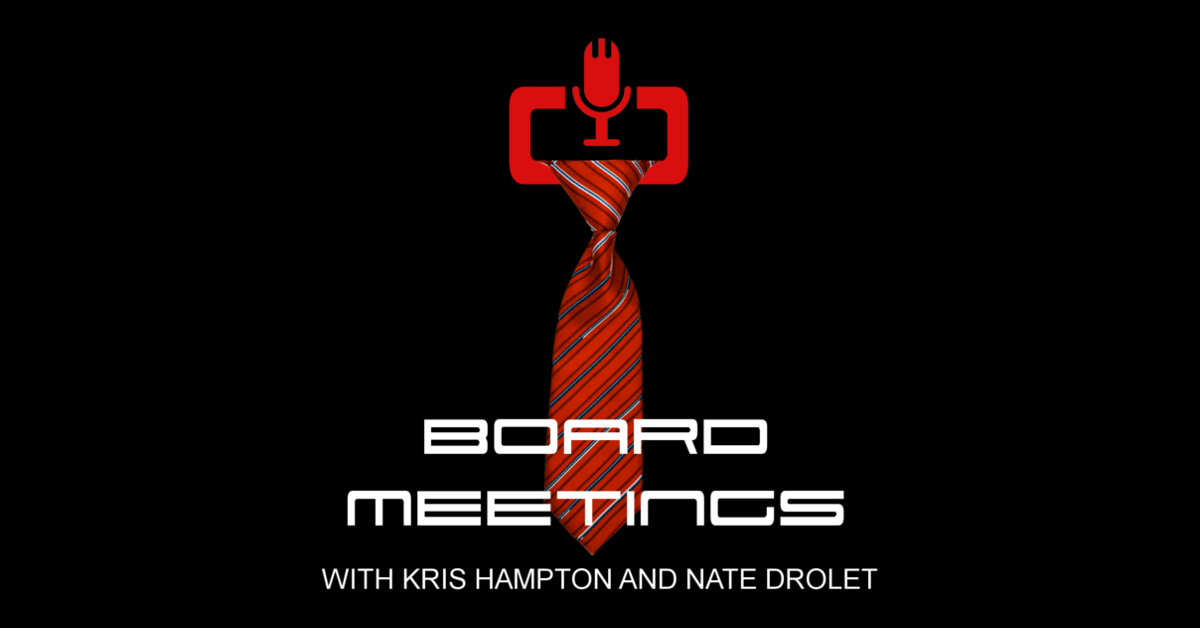




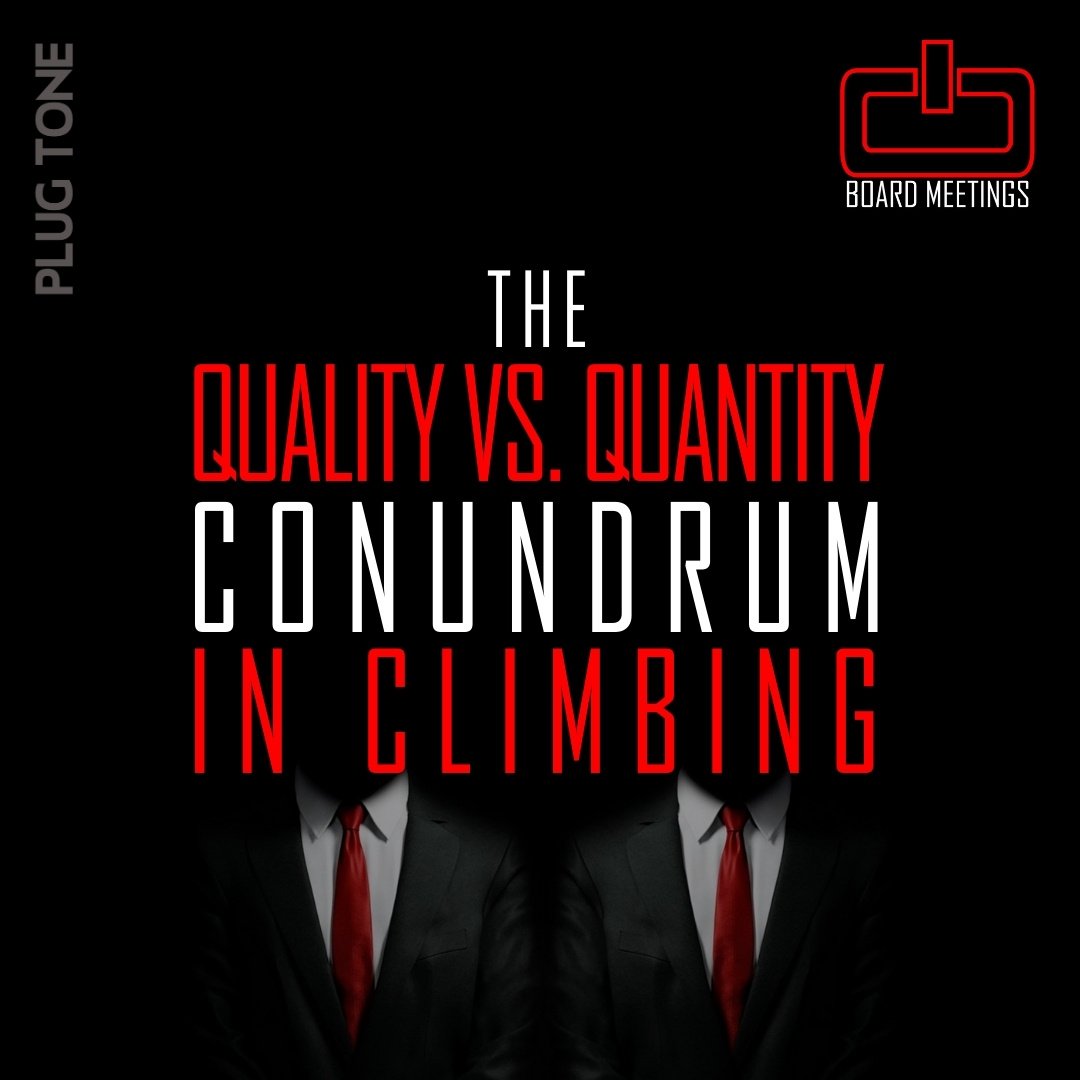


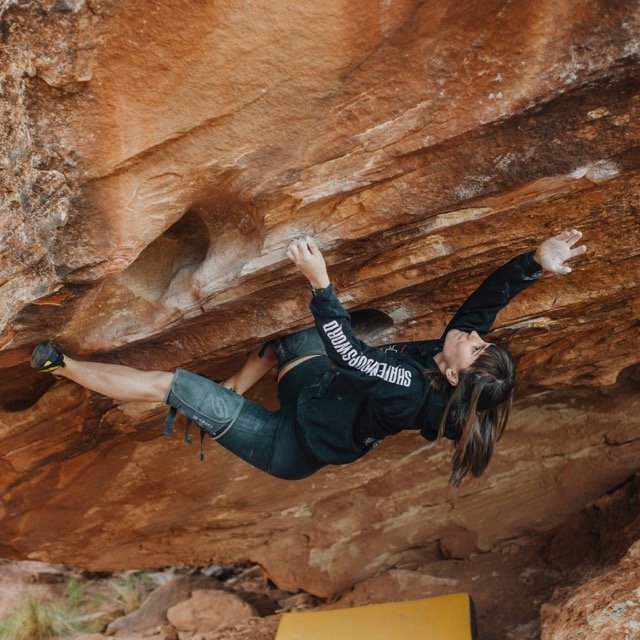

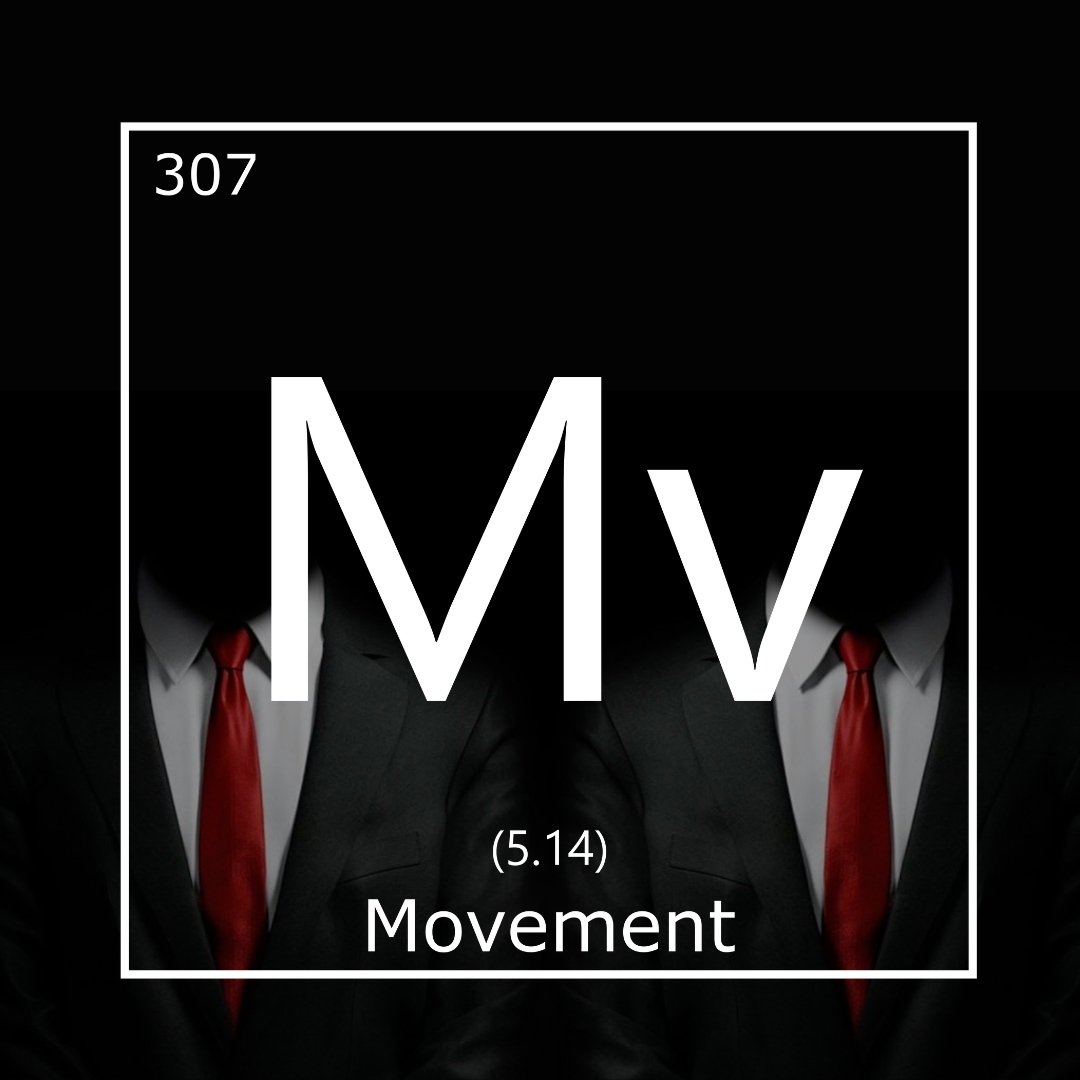
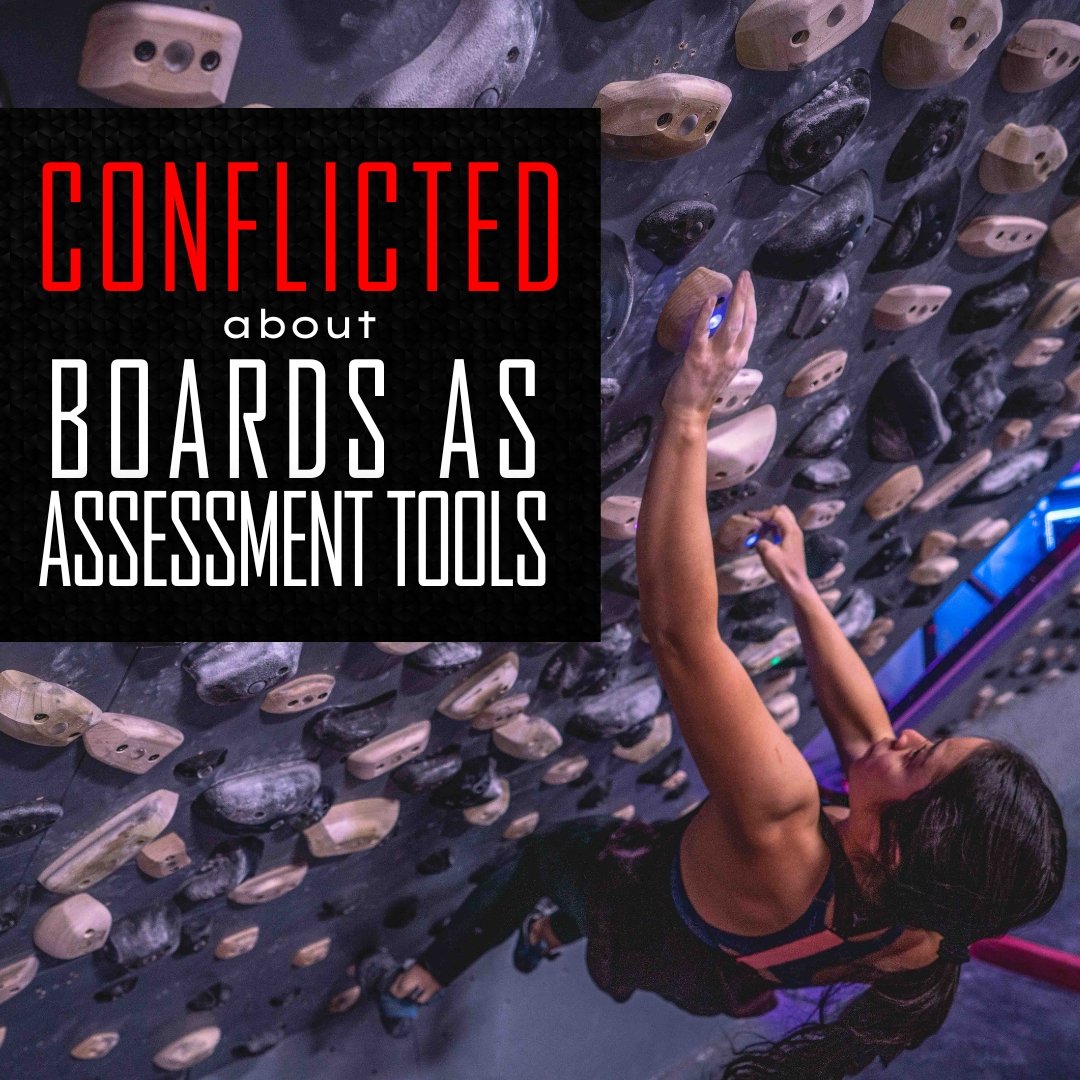
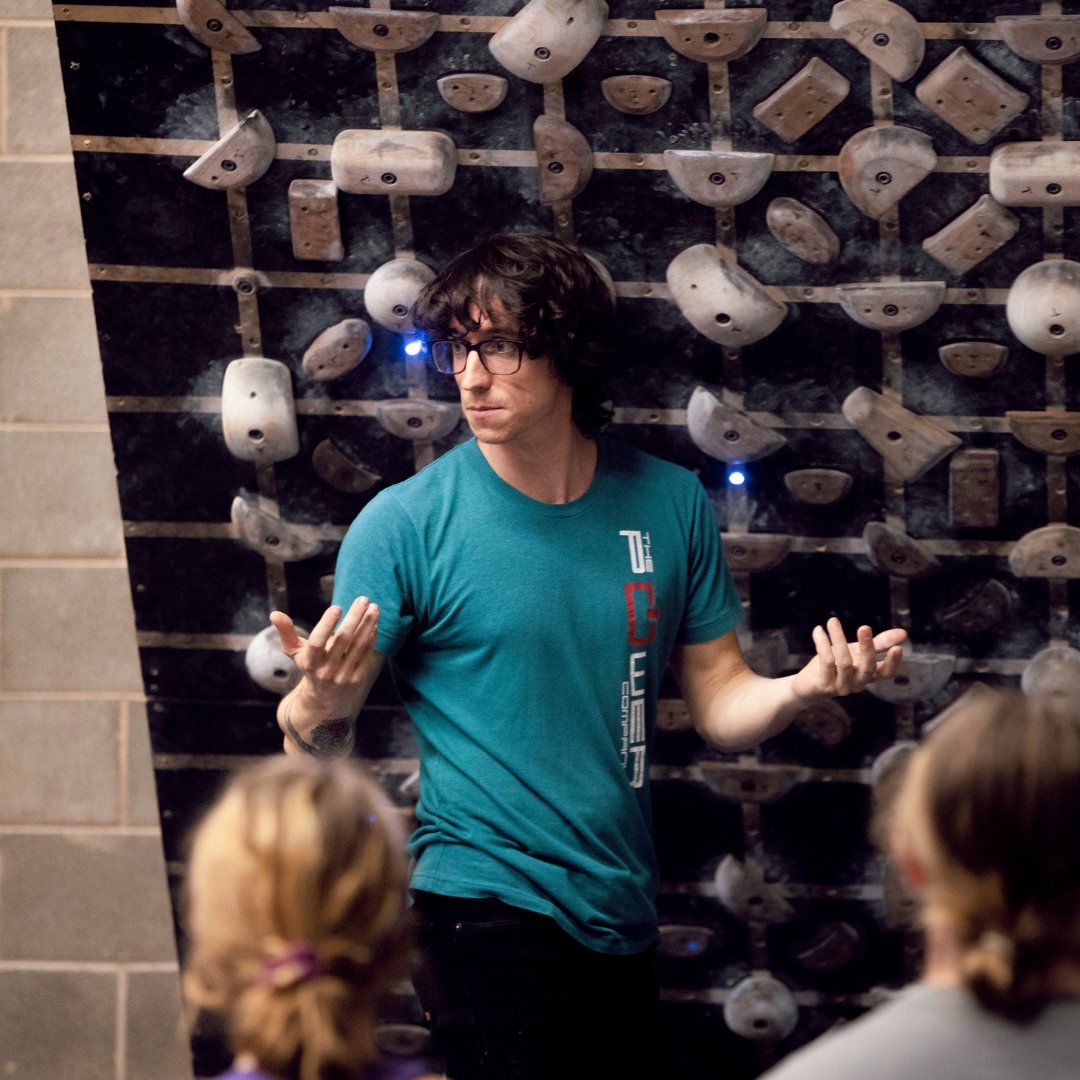
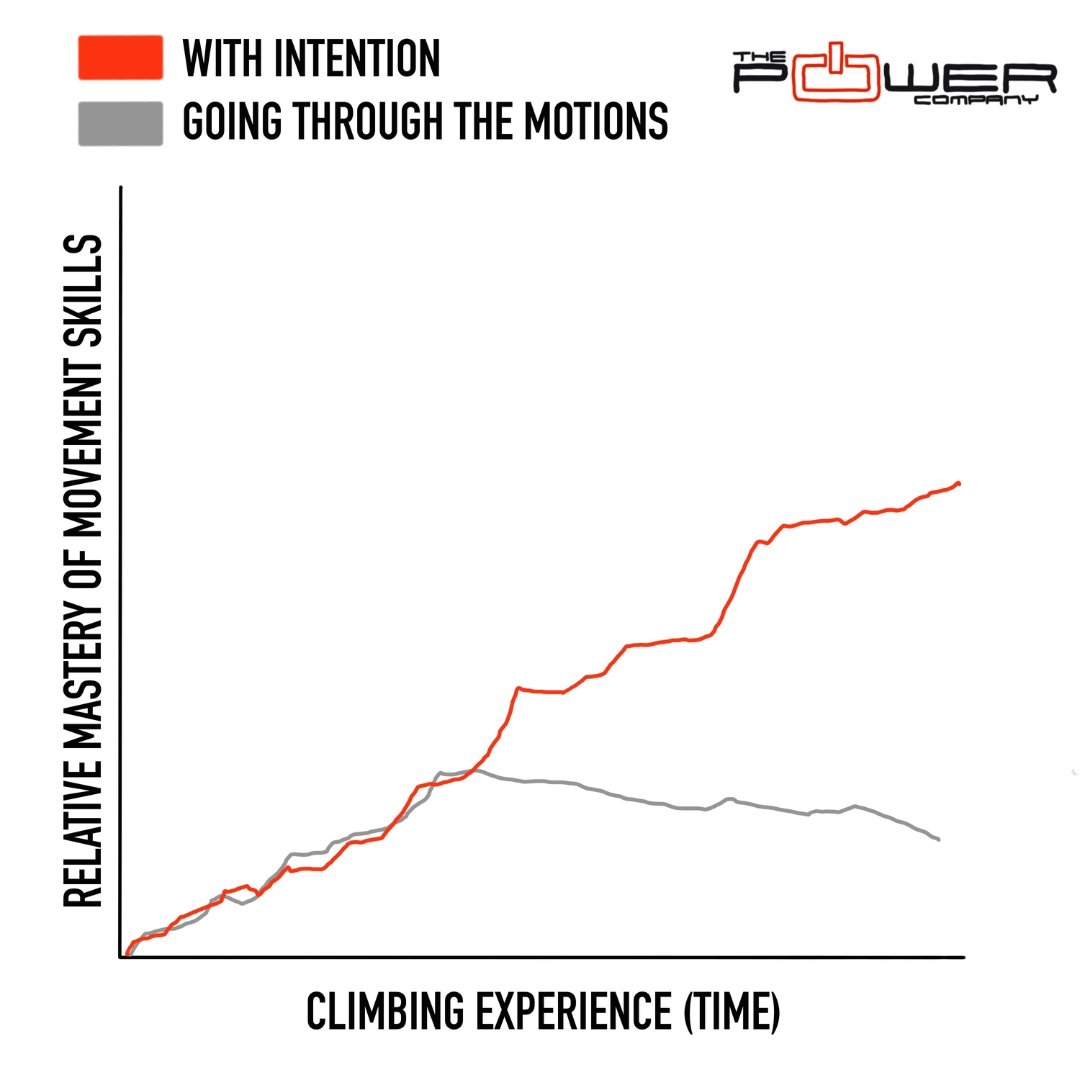




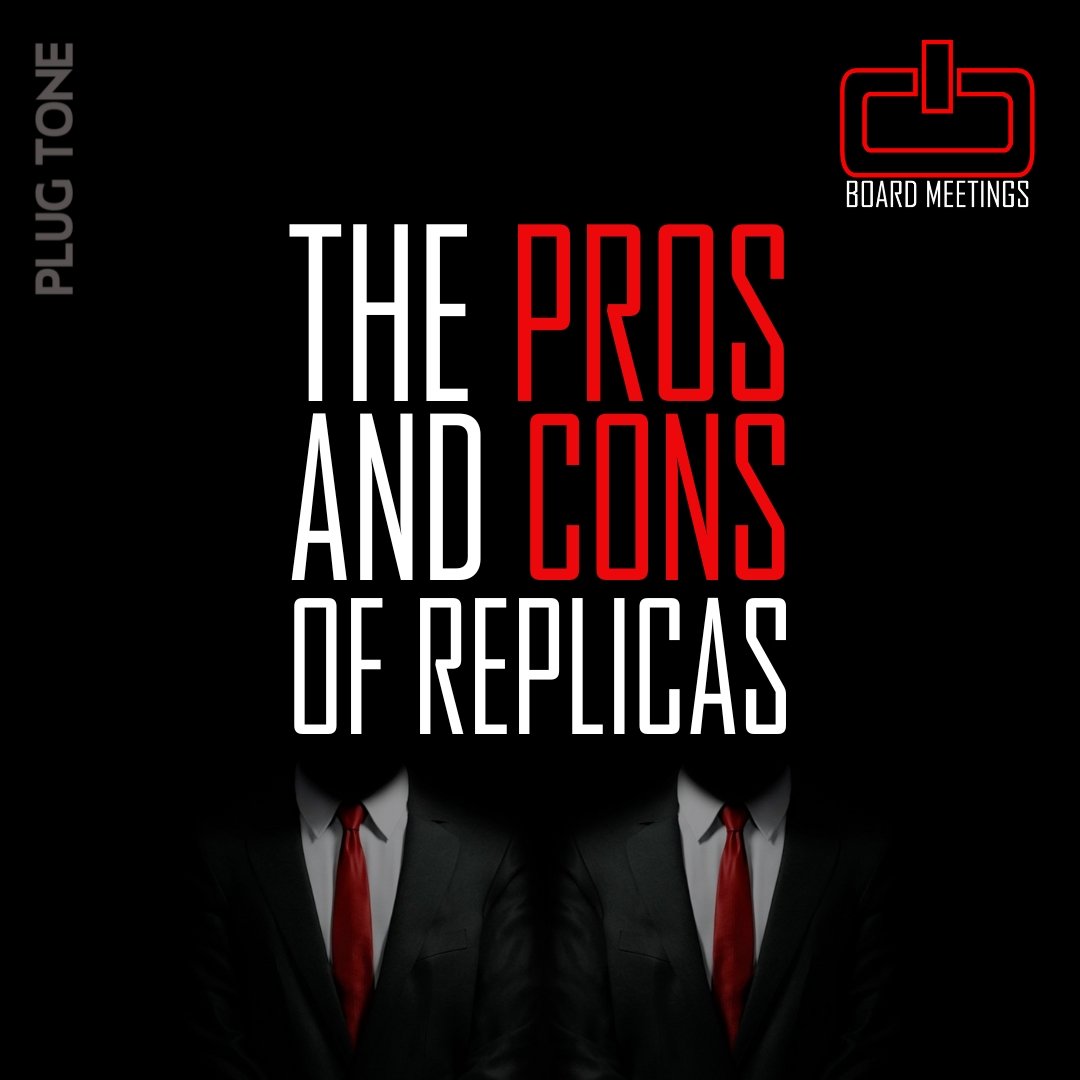


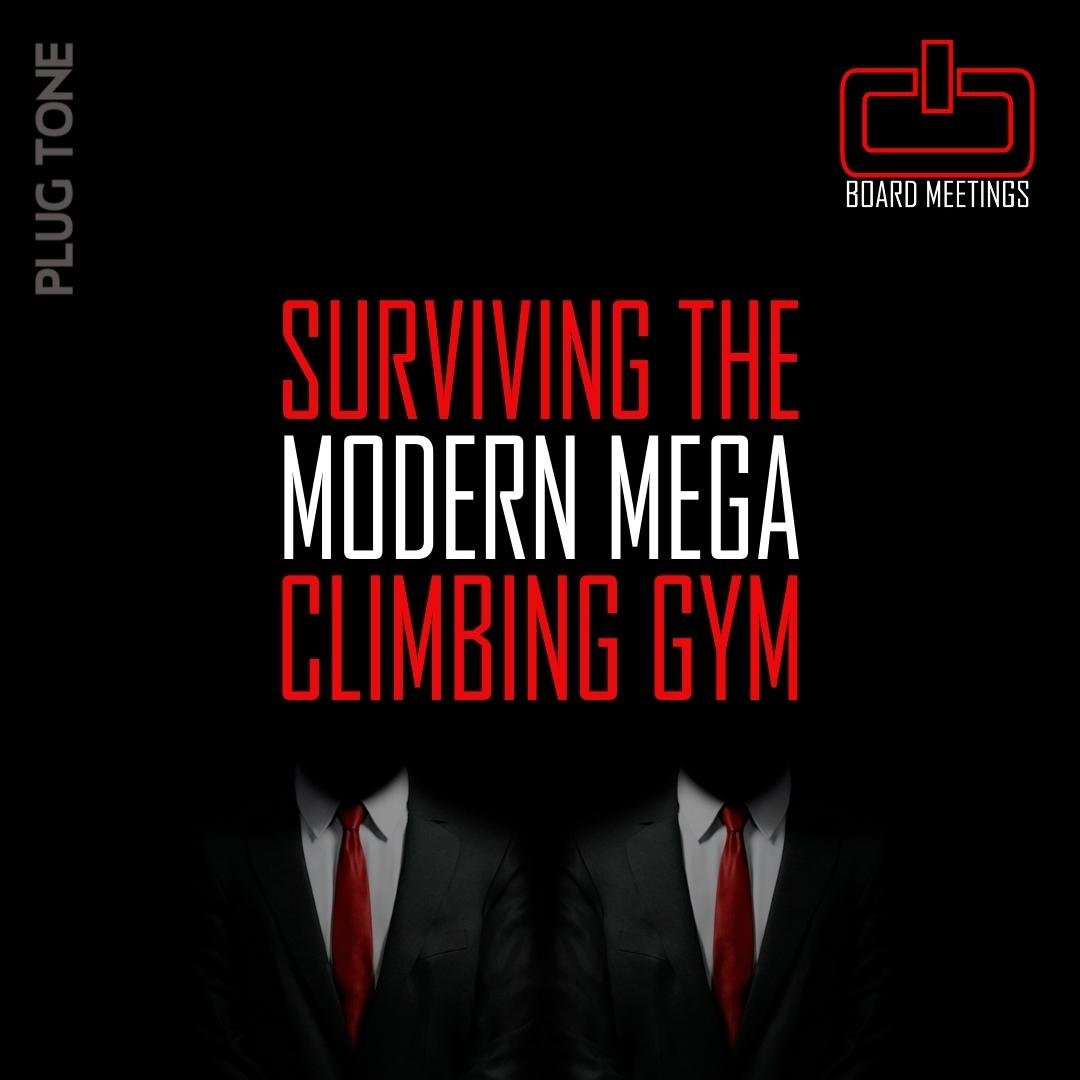


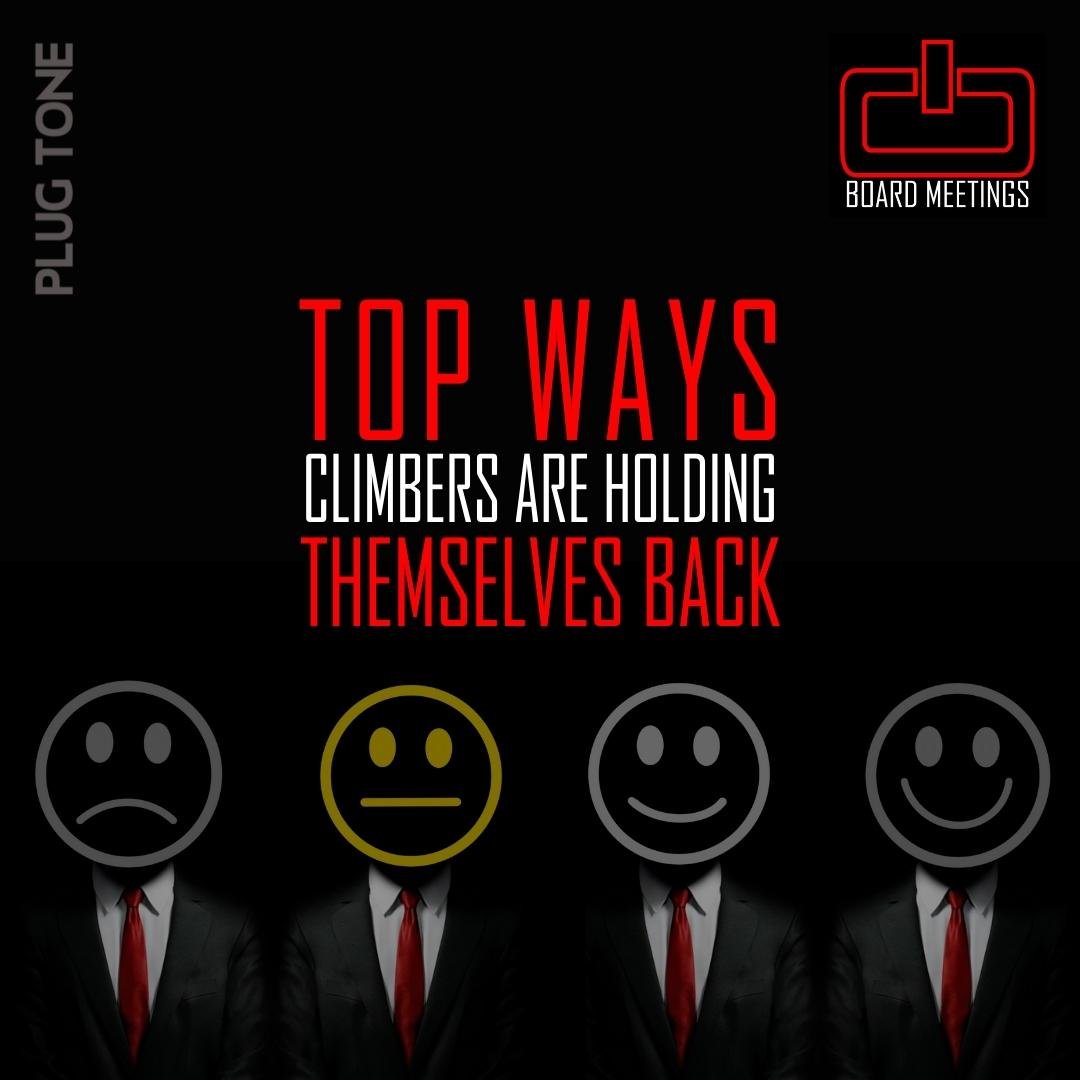



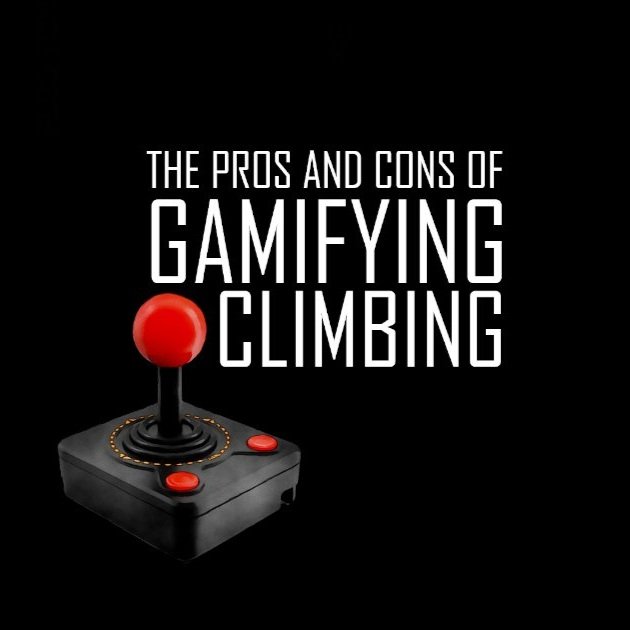

How do you know which is right for your situation?